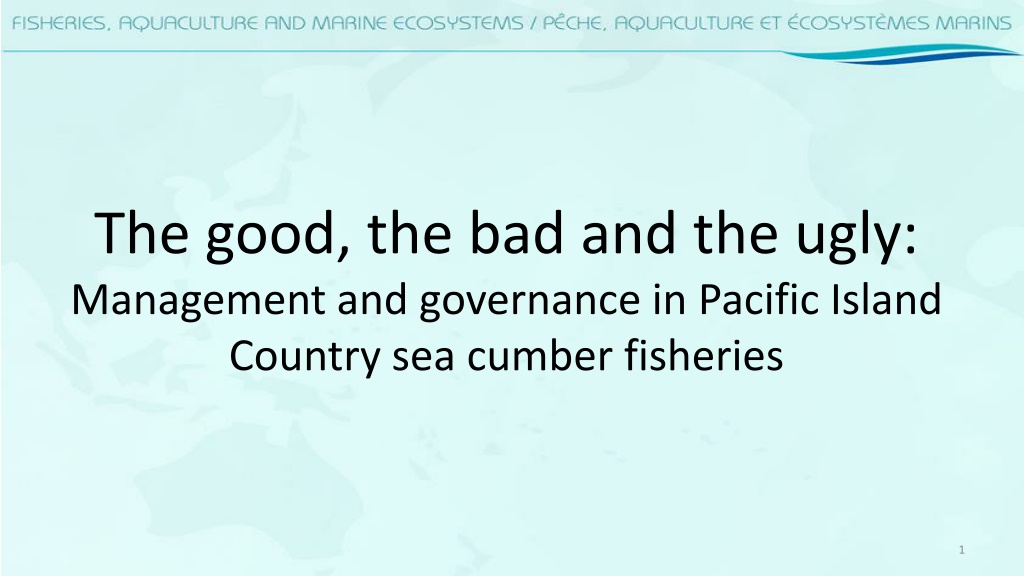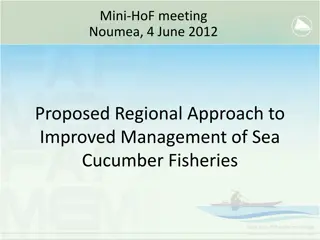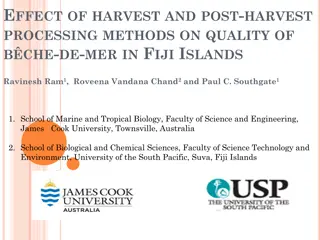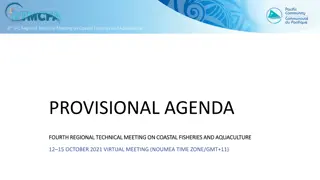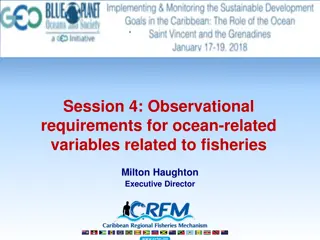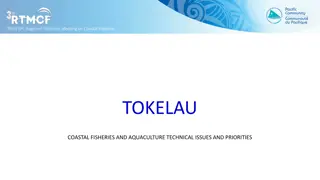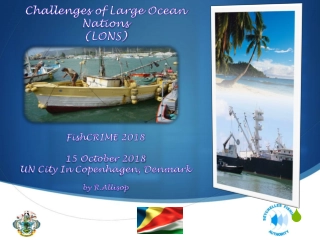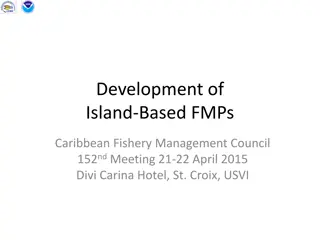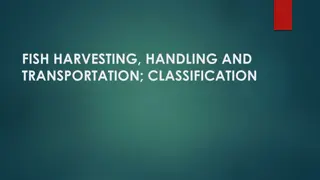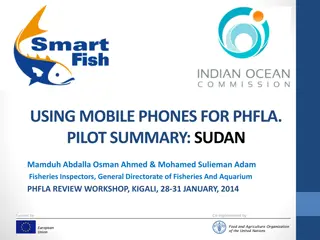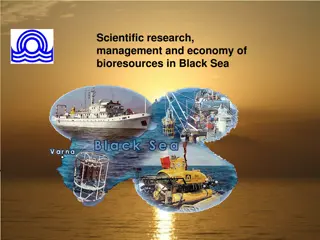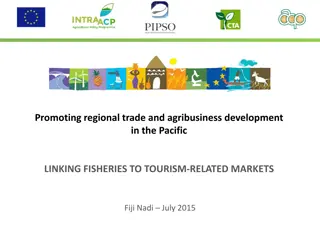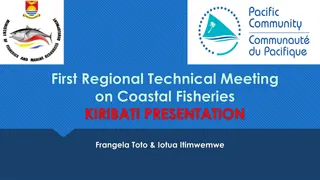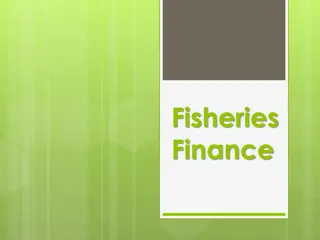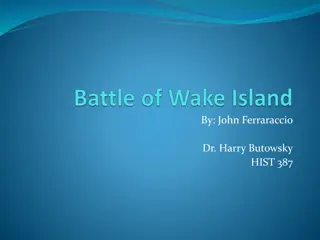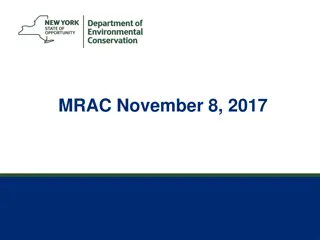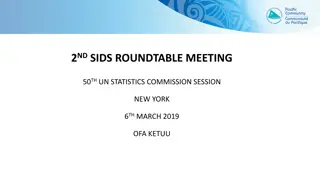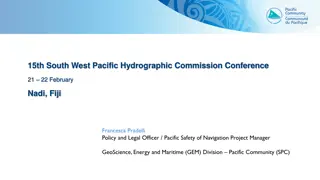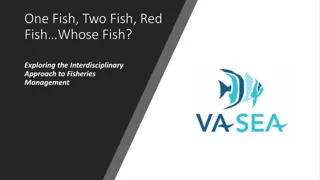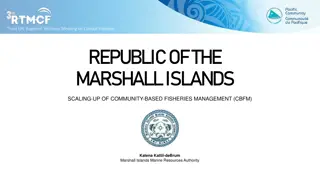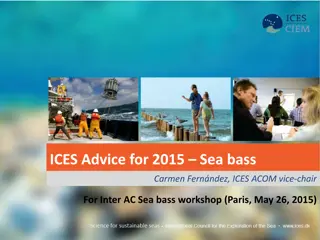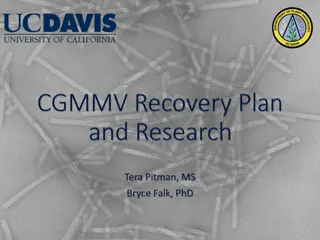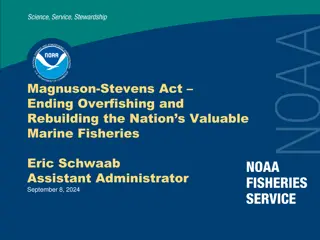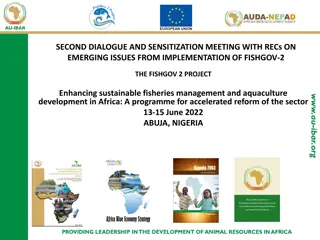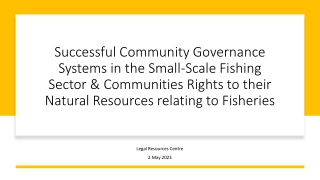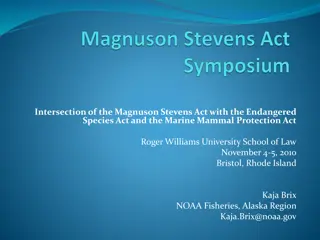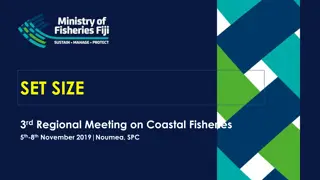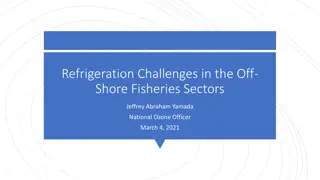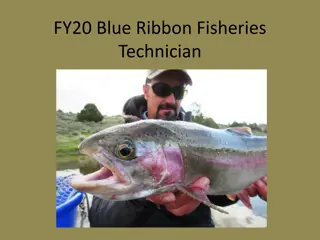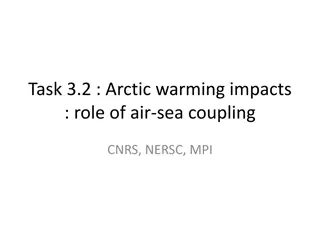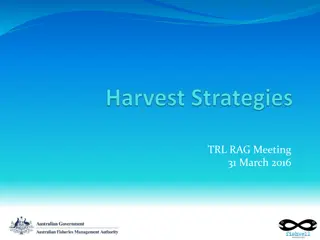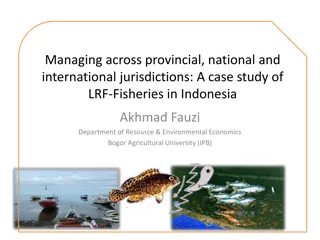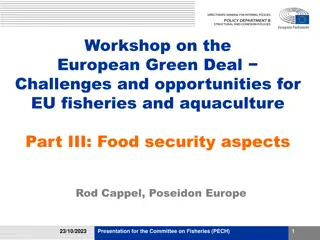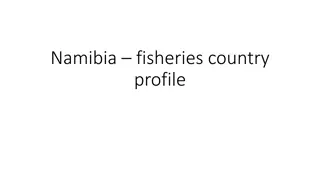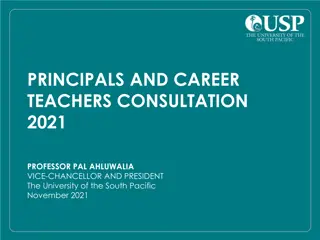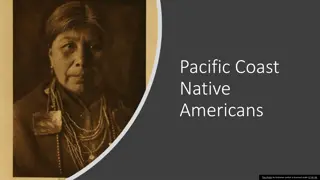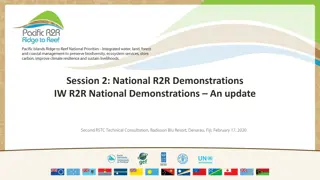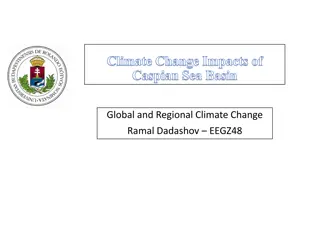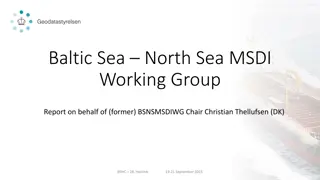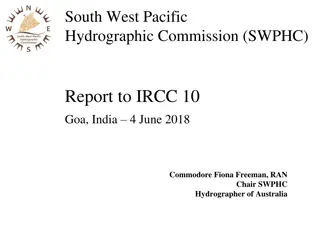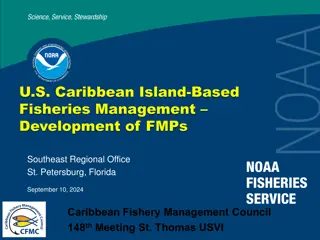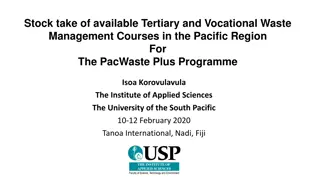Management and Governance in Pacific Island Sea Cucumber Fisheries
This document discusses management and governance practices in sea cucumber fisheries across various Pacific Island countries, highlighting good ideas such as inclusive committees, limiting access, harvest controls, export restrictions, and other measures to ensure sustainable fishing practices. It also touches on the importance of involving relevant stakeholders and implementing effective regulations to protect sea cucumber populations.
Uploaded on Sep 22, 2024 | 0 Views
Download Presentation

Please find below an Image/Link to download the presentation.
The content on the website is provided AS IS for your information and personal use only. It may not be sold, licensed, or shared on other websites without obtaining consent from the author. Download presentation by click this link. If you encounter any issues during the download, it is possible that the publisher has removed the file from their server.
E N D
Presentation Transcript
The good, the bad and the ugly: Management and governance in Pacific Island Country sea cumber fisheries 1
Sea cucumber fishery management plans Fiji (2018) draft Samoa (2015) Kiribati (2013) draft Solomon Islands (2014) Papua New Guinea (2016) Tonga (2007) Papua New Guinea (2018) Vanuatu (2017-2022) Republic of the Marshall Islands (2012) Steven Lee - comparative review: identify good and questionable management measures. 2
Good ideas: inclusive committees Including relevant NGOs and CSOs/fisher representation in management committees, and differentiating between these organisations Local or subnational rules can only be stricter than national ones 3
Good ideas: Limiting access Short open seasons Give priority to local businesses to participate in the fishery Where quota is used, the fishery closes once x% (e.g. 70%) of the quota has been reached = cut off points and triggers 4
Good ideas: Harvest controls Wet and dry minimum size limits (based on biological information) A list of permissible species Restrict harvesting methods Fishing for sea cucumber shall be restricted to hand picking or collecting either free diving or wading (reef walking) and during daylight hours, all other methods are prohibited. Any person found in possession of sea cucumbers in a boat that carries underwater breathing apparatus will be guilty of an offence - Tonga 5
Good ideas: Export restrictions Defining export points Airport x and Port y Restricted number of export licences Standardised labelling and packaging: One species per package Packaged according to grade Labels must display the exporters licence number, number of species in the package, total weight, grade, and FAO species code Wet and dry size limits and permissible species 6
Possibly good ideas Involve customs, Central Bank, tax authorities in export permiting, inspections, data collection and cross-checking Minimum Price guide for buyers Minimum Price guide for export declarations/export levies Export quotas Auctions Compliance bonds 7
The 'not so good Unclear structure of management and advisory committees Undefined time frames e.g. must review the quotas and size limits from time to time as it deems necessary Lack of definitions for terms used in the management plan e.g. ranching Promotion of unproven approaches e.g. quotas and aquaculture 8
E.g. Quota Papua New Guinea* TAC 350 mt dry weight 223% over harvest 2017 Tonga+ TAC 179.4 mt dry weight 201% over harvest 2008 177% over harvest 2009 Vanuatu* TAC 21 mt dry weight 240% overharvest 2016 9 * Govan, 2018 + SPC, 2015
E.g. Minimum sizes Solomon Islands 76% below 2017-18 (legal sizes) Fiji 31% below 2014 ( flat legal size) 67% below 2014 (recc. sizes) Vanuatu >80% below 2016 (legal sizes) 10 MFMR 2018, Tabunakawai et al. 2017, Leopold et al. 2016
Some species would have gained up to 91% more biomass and 144% more value if left to MSL (MSG)
Some species would have gained up to 91% more biomass and 144% more value if left to MSL (MSG)
MSG Fisheries Technical Advisory Committee (2017) and subsequently leaders endorsed upgraded BDM MSL in February 2018. BUT So far not adopted into any country management plan or regulations
Advice: Seriously enforcing Size Limits In conjunction with very intense public awareness Strong and exemplary enforcement at exporters Allow at least 2-3 seasons for the message to sink in In conjunction with short harvest season Leading to: Substitute the I better take it or someone else will mentality for one of fattening our sea cucumbers for the harvest
From bad to ugly: Governance failure in sea cumber fisheries 16
Status of management Good: management plans are good enough Good: highly competent and (initially) motivated fisheries staff Bad: sea cucumber management plans are not implemented effectively Bad: Communities and countries do not get the value they so desperately need from their resources
Why is management failing? Management Technical Political/External Quota (exceeded) Survey and estimates carried out in several countries Undermined indirectly or directly? Size limits (not enforced) Biologically correct in most countries No funding? Licencing (too many or criteria unclear) Calculated value of licences increased Interference in number and allocation of licences Limit season / moratoria (opened early or extended) All countries Political resistance to technical closure / pressure to open Ban gears (exemptions) UBA banned Political decision to exempt Penalties (rare penalties and prosecutions) MCS active in all Lack of will or obstruction of prosecution
Guide to undermining a good management plan Interfere with enforcement of regulations or prosecution Lift moratoria before stocks are recovered Lift moratoria before regulations and management systems are operational Exempt certain people from some regulations (e.g. UBA) Influence licencing procedures Avoid enforcing or implementing (e.g. minimum size limits, exporter monitoring and control). Interfere with minimum buyer prices or export values Don t share information on prices or regulations with the public Forget data collection and reporting Deprioritize funds or staff for enforcement / MCS 22
Who benefits from undermining management? All management plans aim to sustain or increase catches and value management failure means: Catches and value are decreasing.. maybe towards commercial extinction Communities earn less and may have to live without that income Exporters / traders (funders) move around/away or change business Politicians?
Final thoughts (again) National fisheries management efforts for sea cucumber have not been able to control a sharp decline in landings and the value generated by the fishery for communities and national government High value sea cucumber species are experiencing decline and local extinction in many cases. The sharp decrease in BdM is aggravated by the long period of time it takes the resource to recover. There is little opportunity for recovery of BdM populations without major political commitments and interventions. Lack of high level political will and in most cases the interference of poorly informed politicians overriding fisheries advice to ensure short- term gain for their constituents.
